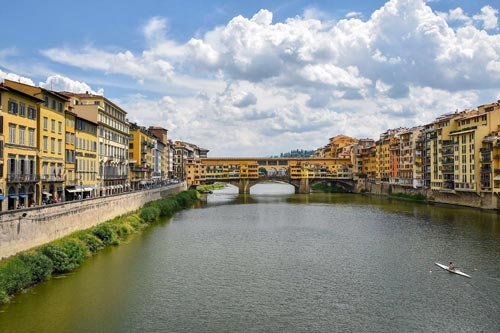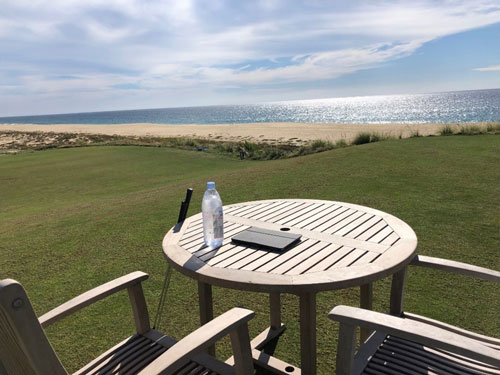For many folks, owning a cheap fixer-upper overseas is the dream…
…a cottage in the French countryside…a home in an Italian hill town…or a hacienda in one of Latin America’s great colonial cities.
However, before you jump in headfirst, keep in mind that the low cost of an old building is often the first indicator that you’ll need to sink money into remodeling or renovating.
And since the full scope of the work is never clear until you’ve committed, this adds a level of uncertainly and risk. Not to mention the hassle of managing a construction project if you’re not living in-country full time.
The type of real estate you choose should come down to your personal preference, your cost and profit expectations, and your appetite for risk. You need to determine the kind of investor you are.
Personally, when I invest for pure profit, I prefer best-in-class real estate. I like opportunities that are as turn-key and as hands-off as possible…
Not just because they’re much easier and I can quickly move on to other opportunities, but because I know from the outset what my costs will be. There are no surprises.
But thats not the case for everyone. So, let’s take a deeper look at what to expect from a more “hands on” type of real estate investment.
My senior researcher, Margaret Summerfield, explains exactly what you need to know if you’re planning to take on a remodel or renovation project.
Read on…
Wishing you good real estate investing,
|
|
Ronan McMahon, Real Estate Trend Alert
***
Seven Top Tips for Remodeling Overseas
By Margaret Summerfield
In a little shop in Antibes, I was waiting in line to pay. The two women in front of me were chatting. One was worried about the cost of a remodel she was having done on her house.
“It’s going to cost double what I expected,” she confided to her friend. “I don’t speak French well, so maybe I misunderstood. Or maybe I’m being ripped off. I just don’t know.”
Remodeling, renovating, or building overseas can be fraught with difficulty. It’s tricky enough at home when you speak the lingo and know the rules. But in a foreign country with a foreign language, it can go pear-shaped…
There are some things you can do to make it go more smoothly. Here’s my top seven.
1. Get the professionals in. That means for anything other than a minor makeover, hire an architect. They can make a huge difference when it comes to utilizing space, how rooms flow and function, as well as how they look. Detailed, professional plans mean the on-site construction crew is less likely to improvise—and come up with something you didn’t want, that doesn’t work, or is plain ugly. A good project manager can ensure that a major construction project goes to plan, on time, and to budget. Whatever professionals you hire, check their experience, their track record and take a look at other projects they have worked on. Have formal legal contracts drawn up that cover what they will do and put remedies in place if they don’t. And make sure there’s insurance in place to cover the usual—fire or water damage, the contractor going bust, etc.
2. Get every permit and approval needed. Overseas isn’t the Wild West, so meet with a local attorney or planning official and ask exactly what you’ll need to carry out the work. And don’t start anything until you have the approval in hand, or else you risk big fines and shutdowns.
3. Itemized budgets. Get an itemized and very detailed breakdown of costs based on your architectural plans, to avoid huge budget over-rides. It should cost everything from doors to screws. Always have a contingency budget too. You may find something that adds significantly to your bottom line after you start work—joists that need replacing or wiring that needs an upgrade, for example. And always have enough cash or finance available to finish the job, even with budget over-rides.
4. Plan timelines carefully. Allow a cushion past whatever day your contractor tells you the job will be done. I’ve met too many folks who arranged to ship all their worldly goods overseas on the day their home was due to be finished—but construction ran late, and they were forced to rent a home and pay to store their belongings for many months.
5. Think about materials. You’ll often find that locally produced items are very high quality, durable, and will cost significantly less than imported ones. Italian marble flooring will come with sky-high taxes and import duties outside of Italy, but a local stone will look just as good, last as long, and save a bundle of money. For fixtures and fittings (and even furniture), stores overseas often carry a very limited amount of stock and it might take weeks or even months to get that kitchen cabinetry or large sofa that you want. Check in advance or your contractors may waste time on site waiting for a vital piece that has to go in before they can do anything else. For anything that’s out of the ordinary to local contractors, think twice before you commit. If they’ve never done a wet room or installed smart wiring, you’re their guinea pig, stuck with any mistakes they make.
6. Inspection, inspection, inspection. It’s ideal if you’re available and close by throughout the project. But if you’re not, you should commit to regular visits. That’s when you’ll find that the on-site contractor has gone off-piste—and your home isn’t quite what you expected. Or, that some of the architect’s plans need a tweak to make it more comfortable or practical. It’s easy these days to do virtual walk-throughs of the home to check on progress, too.
7. Local knowledge is key. Nothing beats a contractor who has spent decades perfecting how to channel tropical rains away from a home, what materials cope best with local weather conditions, the best method for keeping interiors fresh and cool in the desert or warm and cozy in the mountains. You should also understand yourself what’s needed with the local climate and terrain—why build a roof designed to hold several feet of snow in a location where it never snows?




